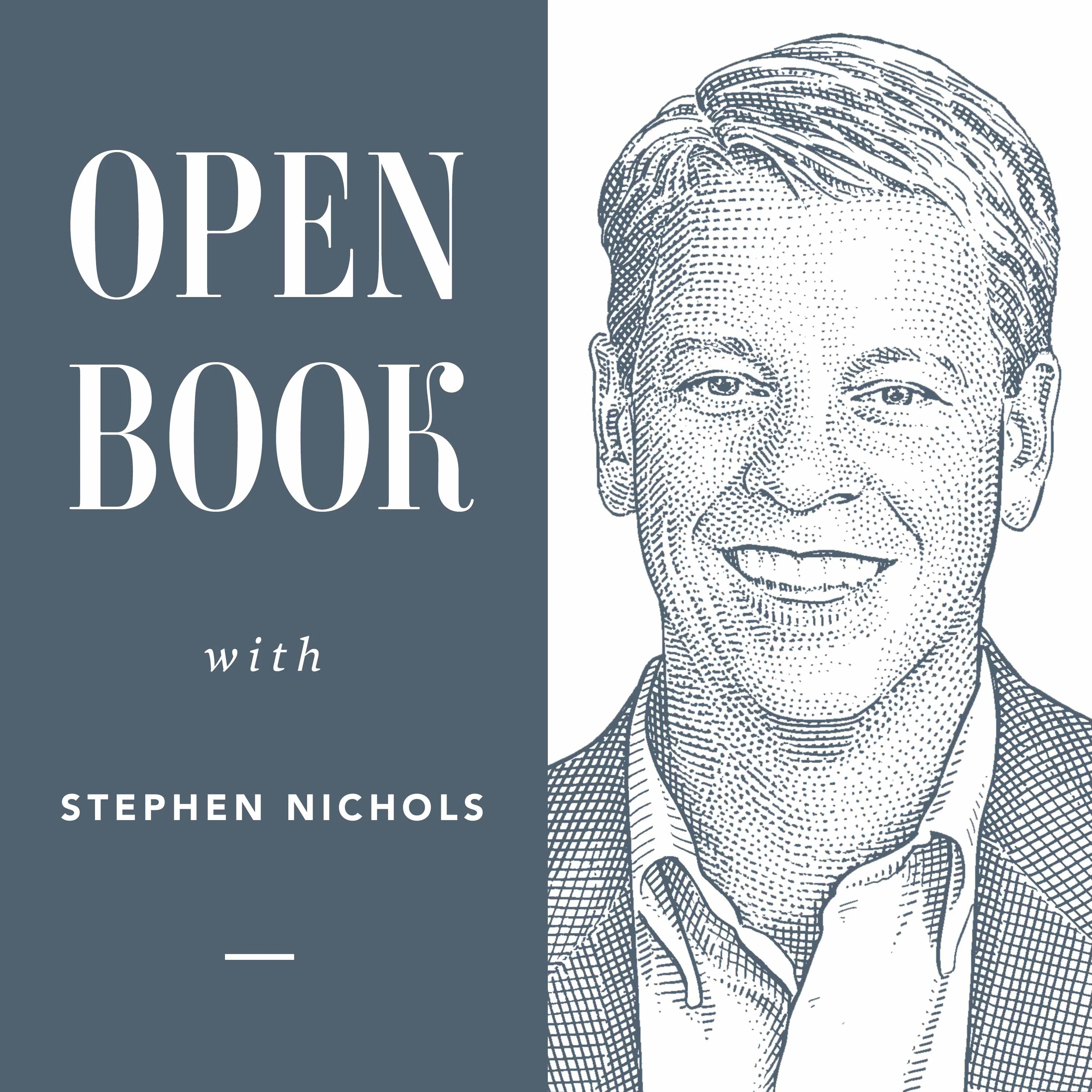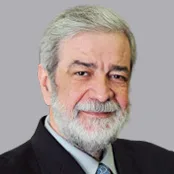Augustus Nicodemus Lopes on Baxter’s The Reformed Pastor

The Puritans understood the high calling of a pastor: devotion to Christ and to the care of His sheep. Today, Stephen Nichols and Augustus Nicodemus Lopes examine a classic book on pastoral ministry by the Puritan Richard Baxter.
Dr. Stephen Nichols: Welcome back to week four of this season of Open Book. We are visiting with Dr. Augustus Nicodemus Lopes and learning about the books that have influenced him. And on this episode, we are moving on to a Puritan. So, we have Richard Baxter, The Reformed Pastor. So, how did you first come into possession of this book?
Dr. Augustus Nicodemus Lopes: Yes, Dr. Nichols, I don’t know if you ever heard of a mission called Operation Mobilization?
Nichols: Yes, sure.
Lopes: These guys, they have those large boats . . .
Nichols: The boats.
Lopes: . . . yeah, that just stay for a time in a harbor, especially in churches—I mean in cities and towns of countries where the gospel cannot be preached in a public way. And they open the boat so that people can come and buy books and listen to lectures and everything. So, one of these boats called Doulos just harbored at my hometown Recife.
Nichols: And _doulos _means “servant” in Greek.
Lopes: Yeah, in Greek. And so, they announced that Brother Andrew would be there for speaking to the young people. Brother Andrew was known for smuggling Bibles into Russia. And so, everybody wanted to see him. And then I went to this boat for the conference, and then I went to the library.
At the time, I was already become Reformed, and I was in the seminary, first year of seminary, and people would speak evil against the Puritans. The idea they had about the Puritans—it is the common idea that they’re very austere people; they don’t want you to have pleasure . . .
Nichols: Gloom and doom.
Lopes: Gloom and doom, and all that. And so, the title of this book caught my attention The Reformed Pastor. And I wanted to be a pastor, and I knew I was Reformed, but it was written by a Puritan. So, I kind of hesitantly, I said, “Yeah, I’m going take that book and read it.” I was, I mean, I was surprised.
The book is divided in two sections. In the first one, he says you have to take care of yourself and the doctrine, and the other one is about taking care of those whom God entrusted to you. And he says that the work of a pastor is like—he emphasized visiting—visiting people and using those visits for teaching people the catechism, the confessions. The pastor should inquire into the life of those that live in that room. And then he had this whole section on about ourselves—to take care of our hearts and lives and the life with God and fullness of the Holy Spirit. So, it was a complete book on pastoral work, of a very detailed one as well, as the Puritans used to write.
And so, that made an impact. At that time, I was planting, I was starting to plant a church, and I used that as a model for my ministry. I started to visit more people and to use—you know, in Brazil, usually when pastors visit someone, they just go to drink a cafezinho, a coffee, just to have coffee and speak about, you know, amenities and things like this . . .
Nichols: Whatever’s happening.
Lopes: Whatever’s happened. But then I started to use those times of visitation just to make disciples, to help people, ask them: “How is your life? Is your life right with God? Are you doing something wrong? Do you have any doubts?” You know, do that that we usually do from the pulpit, you do in person. And I think it was very effective in my ministry at that time. I saw a lot of results. And so, Baxter, The Reformed Pastor, is the book that I would—I mean, if some student came to me and said, “I want a book that would help me to know how to pastor,” I would say, “Start with Baxter—that would be the best place to start with.”
Nichols: You know, we speak of the “old paths.” So, I’m thinking here of: this is a seventeenth-century British Puritan, and you’re in a late twentieth-century Brazilian context.
Lopes: That’s right.
Nichols: And you’re finding here a blueprint that is actually helpful for your pastoral ministry.
Lopes: It’s as if Baxter had written yesterday.
Nichols: Now, if only he had written in Portuguese, that would just make it all the better.
Lopes: You know, the problems that people have, the questions they have, and the solutions are still the same. It’s just instead of, for instance, if you cannot visit, you have a conference over the computer and talk to them, it will do the same effect. But the thing that Baxter insists is that the pastor uses his time of visiting and discipleship to really help people to grow and become Christians. And before you do that, you have to take care of yourself. So, he put the two things together that gave me a blueprint, actually, of how to pastor, and I think his influence is with me up to this day.
Nichols: So, this is genuine shepherding.
Lopes: Yeah.
Nichols: That’s what we’re talking about here. And as you’re speaking of the relevance of it—you know, as if it were written today—in a sense, all these issues we look at, they have twenty-first or twentieth-century trappings, but ultimately they’re theological. And that means there are theological solutions for these things. And in one sense, that is the old paths of just solid biblical teaching that helps us understand who we are before God and how to live in this world, whichever world we find ourselves living in.
Lopes: Puritan pastors were wonderful pastors. They had to take care of the flock because the parish was so large. I’m thinking about England. So, a pastor would have very little opportunity to visit with every one of the members of his church because it was so large a region.
Nichols: Area, sure.
Lopes: Yeah, so he would use preaching to do some pastoring. He would preach one hour and then would apply that another hour. And then when he visited, he would go through the catechism and the confession of faith. He used all the opportunities he had because of the situation of that time. I know it is different today, but the principle remains, this is how you—it’s not in vain that in Ephesians 4:10, it is written that God gave pastors and teachers, which I think is the same thing. It’s the same thing.
Nichols: Same office.
Lopes: Same office—pastors who are teachers—we could translate that way. And the Puritans knew how to do that as pastors.
Nichols: They did, they did know how to do that. Well, we are in the studio with Dr. Nicodemus talking about a book that influenced him, The Reformed Pastor, and we’ll be back next week with another book for this season of Open Book. Thank you for being with us.
Lopes: Thank you.
Nichols: I’m Steve Nichols, and you’ve been listening to Open Book, a podcast about the power of books and the people they’ve shaped. Help grow this podcast by sharing it with a friend or your family. Also, be sure to leave a review wherever you listen to the show. This is a great way to help others find the podcast. Please join us next week as we’ll be back in the library for another episode of Open Book.
Recent Episodes
Augustus Nicodemus Lopes on Renewing Your Mind
June 27, 2024|Theologians
Augustus Nicodemus Lopes on Pearcey and Thaxton’s The Soul of Science
June 20, 2024|Apologetics
Augustus Nicodemus Lopes on Ridderbos’ Paul: An Outline of His Theology
June 13, 2024|Biblical Theology
Augustus Nicodemus Lopes on Lloyd-Jones’ Preachers and Preaching
June 6, 2024|Christian Classics
Augustus Nicodemus Lopes on Spurgeon’s Lectures to My Students
May 30, 2024|Christian Classics
Augustus Nicodemus Lopes on Packer’s Evangelism and the Sovereignty of God
May 23, 2024|Christian Classics

